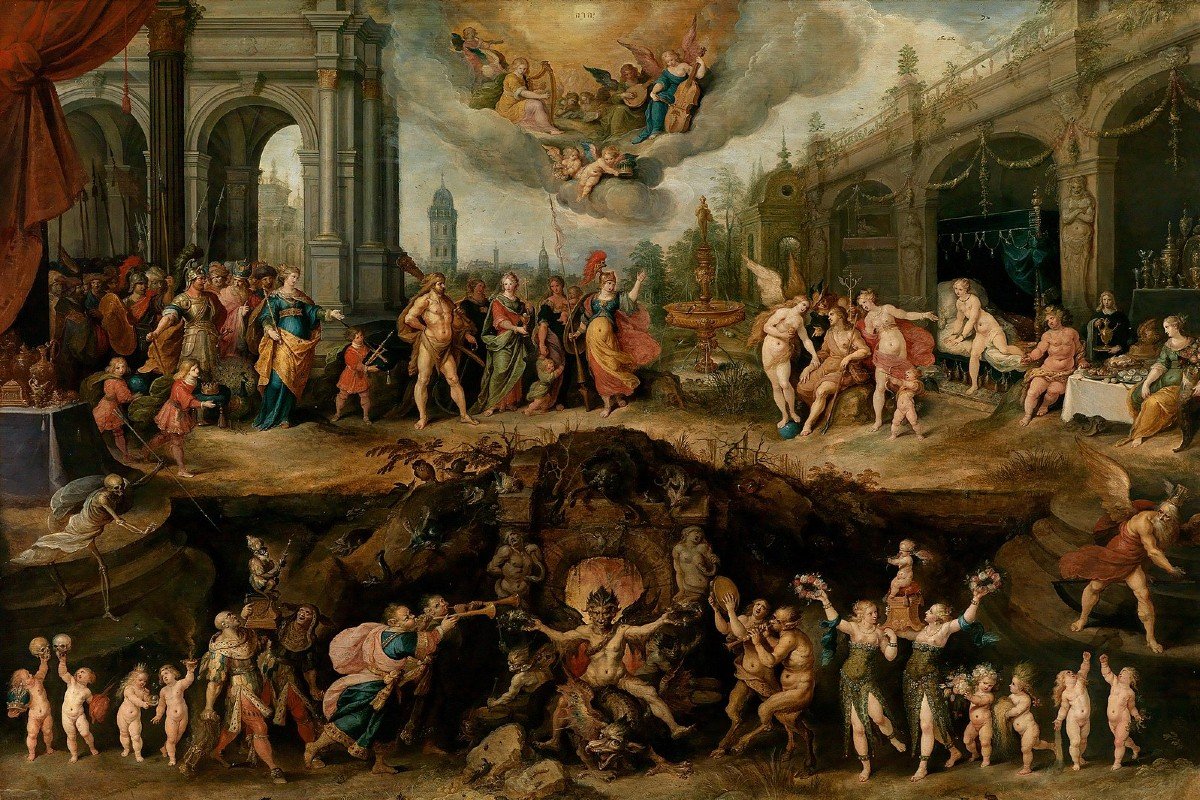Hades and Paradise
Want to see true confusion etch itself across a Christian face? Tell them that Hades is not the same as Hell, and Paradise is not the same as Heaven. Then, just for fun, tell them that when people die, they go to Hades or Paradise depending on their relationship with God, but that Heaven and Hell (Lake of Fire) don’t come into play until after the Great Judgment. That the “holding tanks,” if you will, for the current dead are Hades and Paradise (or the collective Sheol in the Old Testament).
Maybe I just messed with you, too.
But it’s true. When it comes to Hell and the Bible, people often lump Hades and Hell together, but those are actually two different places. Prior to the end of time and the Great Judgment, Hades is where those who are not in a relationship with God go when they die. It’s a place of suffering and separation from God, but it’s not Hell. It’s where people go awaiting the final judgment that will happen at the end of time for all people.
There isn’t some kind of “soul sleep” in Scripture, and people are not destined to Heaven or Hell/Lake Fire until after the Great Judgment, so we are told that they first go to Paradise or Hades upon death.
Consider the story Jesus told about a rich man and a beggar named Lazarus:
There was a rich man who was dressed in purple and fine linen and lived in luxury every day. At his gate was laid a beggar named Lazarus, covered with sores and longing to eat what fell from the rich man's table. Even the dogs came and licked his sores.
The time came when the beggar died and the angels carried him to Abraham’s side. The rich man also died and was buried. In Hades, where he was in torment, he looked up and saw Abraham far away, with Lazarus by his side. So he called to him “Father Abraham, have pity on me and send Lazarus to dip the tip of his finger in water and cool my tongue, because I am in agony in this fire.”
But Abraham replied, “Son, remember that in your lifetime you received your good things, while Lazarus received bad things, but now he is comforted here and you are in agony. And besides all this, between us and you a great chasm has been fixed, so that those who want to go from here to you cannot, nor can anyone cross over from there to us.” (Luke 16:19-26, TNIV)
So, there you have a picture of Hades. And where did one go to be by Abraham’s side? Only where Abraham was.
Paradise.
Jesus was crucified between two criminals. One turned to Jesus, even in his final moment, in faith. The other did not. To the one who did, Jesus said these words: “I tell you the truth, today you will be with me in paradise” (Luke 23:43, NIV).
As mentioned, in the Old Testament, the word Sheol – meaning the place of the dead – was used to encompass both, and that it would either be Paradise or Hades depending on your life choices.
But Heaven itself, as well as Hell, comes later when the places of the dead are emptied, and the Great Judgment takes place of all who have lived.
As Jesus taught:
When the Son of Man comes in his glory, and all the angels with him, he will sit on his throne in heavenly glory. All the nations will be gathered before him, and he will separate the people one from another as a shepherd separates the sheep from the goats.... Then they [the goats] will go away to eternal punishment, but the righteous [the sheep] to eternal life. (Matthew 25:31-32,46, NIV)
It’s not that the teaching is disturbing as much as it is confusing, or new. We talk of people going to Heaven or Hell and that people who die in Christ are in Heaven. That is true. But between now and the events that will occur at the end of time – particularly the Great Judgment – the dead go to a place that reflects their choice, but which precedes the final judgment that will declare their final resting place.
Only for some, sadly, it will not involve rest.
If this weren’t a blog, but rather a tweet, I would here add a hashtag:
#EvangelismMatters
James Emery White

